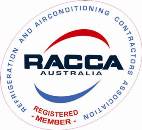The Electrotechnology Industry Reference Committee (IRC) have released a Refrigeration and Air Conditioning (RAC) Case for Change which includes a proposal for new RAC qualifications.
The Australian Industry Standards’ website states that the Electrotechnology IRC drafted the Case for Change for the development of a new Certificate III in Refrigeration and Air Conditioning, and a Certificate IV in Advanced Refrigeration and Air Conditioning, “to meet the current and future skills needs of the industry.”
The Case for Change states that it sets out the “strategic and evidentiary case for reviewing existing and developing new Electrotechnology Training Package products”. The development of existing qualifications will focus on the Certificate III in Refrigeration and Air Conditioning and 50 units of competency, and the Certificate IV in Advanced Refrigeration and Air Conditioning and 30 units of competency. There is also a focus on new units of competency, which include Handling A2 Flammable Refrigerants, and Recover Refrigerant from Stationary Self-contained End of Life Decommissioned Equipment.
The Case for Change states that reasons for the proposed changes to the qualifications are the domestic and international changes that have occurred since the implementation of the UEE06 and UEE11 Electrotechnology Training Packages. These changes include but are not limited to: the set out of the mandatory timetable for the phaseout of ODS under the Montreal Protocol, the increasing use of natural and synthetic refrigerants, the replacement of the AS/NZS1677:1998 with the AS/NZS5149 and the AS/NZS ISO 817, the implementation of MEPS on RAC equipment, and the implementation of the Paris Climate Change Agreement.
The Australian Industry Standards’ website states that new Certificate III in Refrigeration and Air Conditioning “will cover the essential knowledge and skills required by all refrigeration and air conditioning technicians, irrespective of their area of specialisation.” In comparison, the new Certificate IV in Advanced Refrigeration and Air Conditioning “will address higher-level, post-trade requirements.”
The Handling A2 Flammable Refrigerants unit of competency will focus on handling new lower GWP refrigerants and will “provide gap training for existing workers so they can safely use and handle synthetic refrigerants.”
The Recover Refrigerant from Stationary Self-contained End of Life Decommissioned Equipment unit of competency will focus on “enabling workers in waste and recycling organisations to gain the required knowledge and skills to safety and effectively recover non-flammable and flammable refrigerants from stationary self-contained end of life decommissioned refrigeration and air conditioning equipment, using appropriate tools and equipment.”
The RAC Case for Change also contains a full list of the 50 competency units for the new Certificate III in Refrigeration and Air Conditioning and the 30 competency units for the new Certificate IV in Advanced Refrigeration and Air Conditioning, and a timeline on the development of these new qualifications.
The RAC Case for Change is open for comment until Friday 20 October, more information including where to submit feedback can be found here.
Image via Pixabay.




